Abstract
Traditional critics of behaviorism and behavior analysis have emphasized that these approaches cannot deal with creative achievements in the arts or sciences, or even in ordinary speech. This essay explores several lines of research and conceptual issues from different sources in an effort to refute this claim. The emphasis is on scientific and mathematical creativity. Some of the topics considered include the role of special practice and manipulation, conditions for development of automaticity, the interplay of contingency-controlled and rule-governed behavior, modeling, abstraction, intuition, the blending of response units, and emergent behavior. Some limitations of a behavioral account are also considered.
Keywords: creativity, problem solving, automaticity, genius
Full text
PDF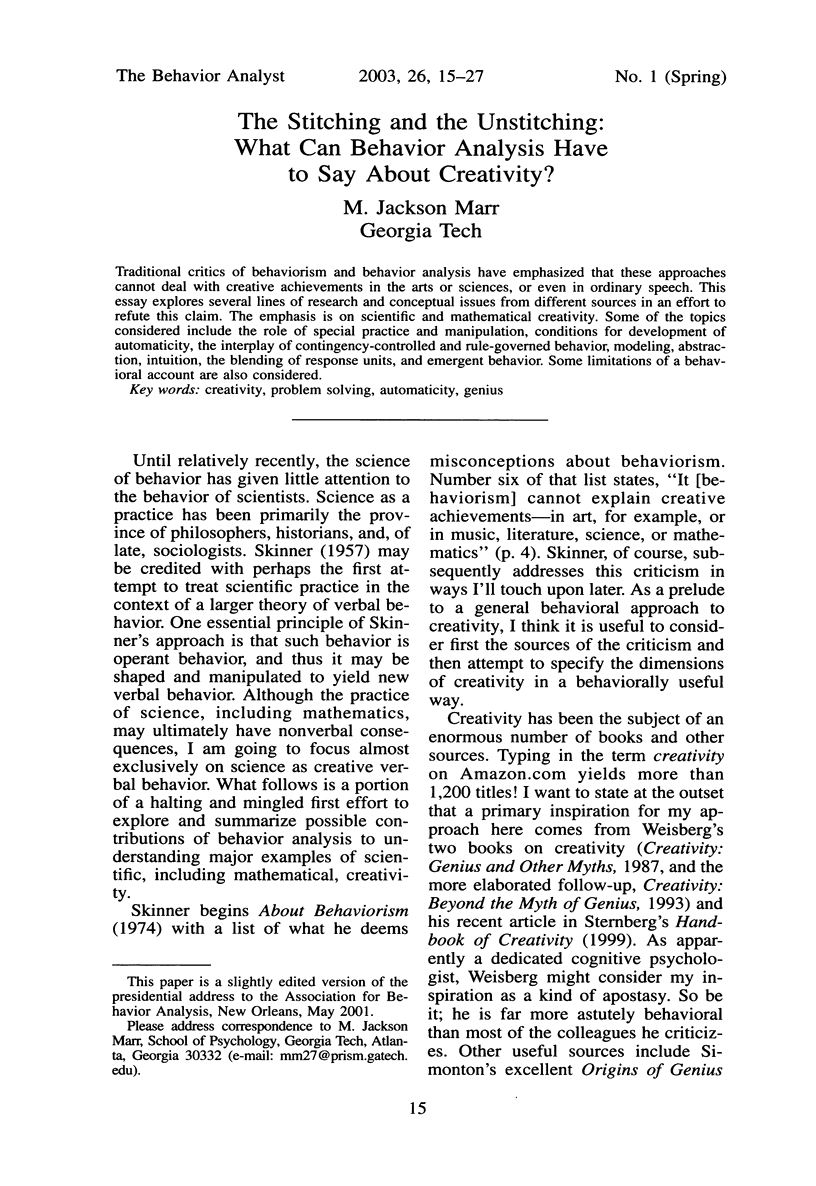
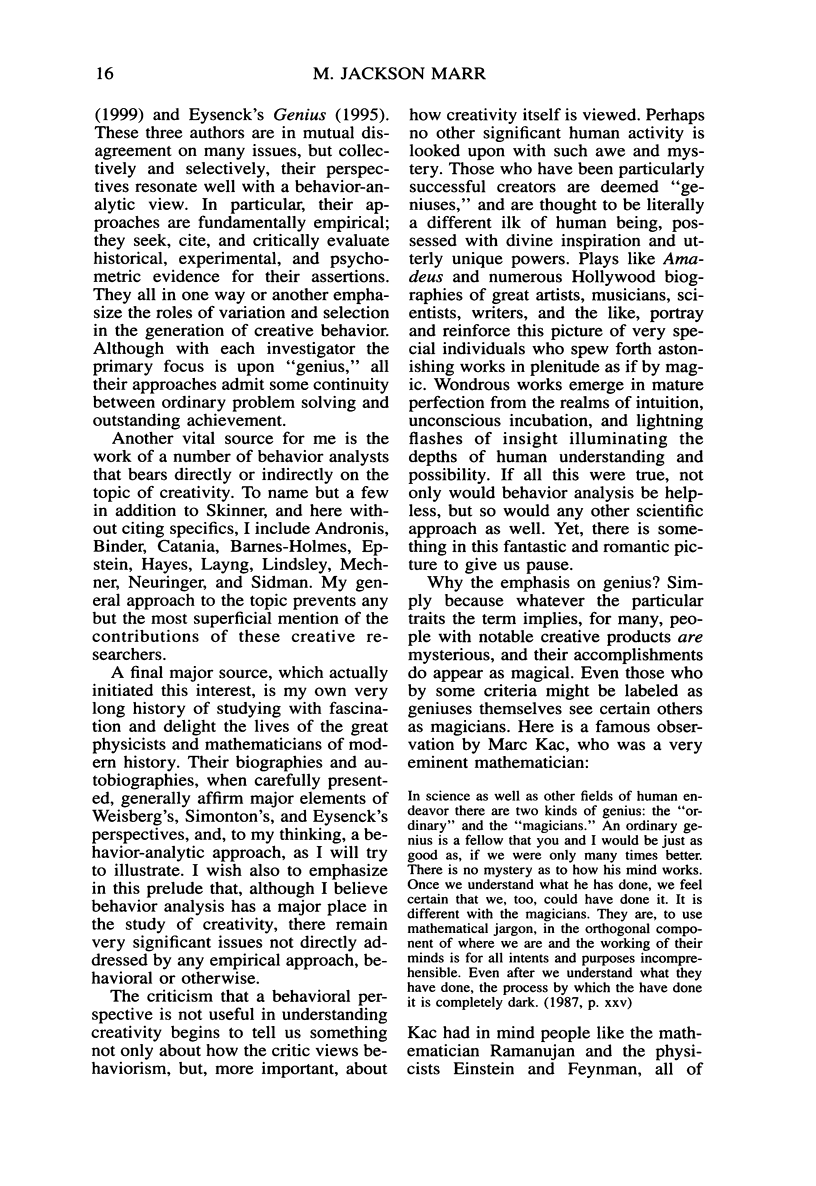
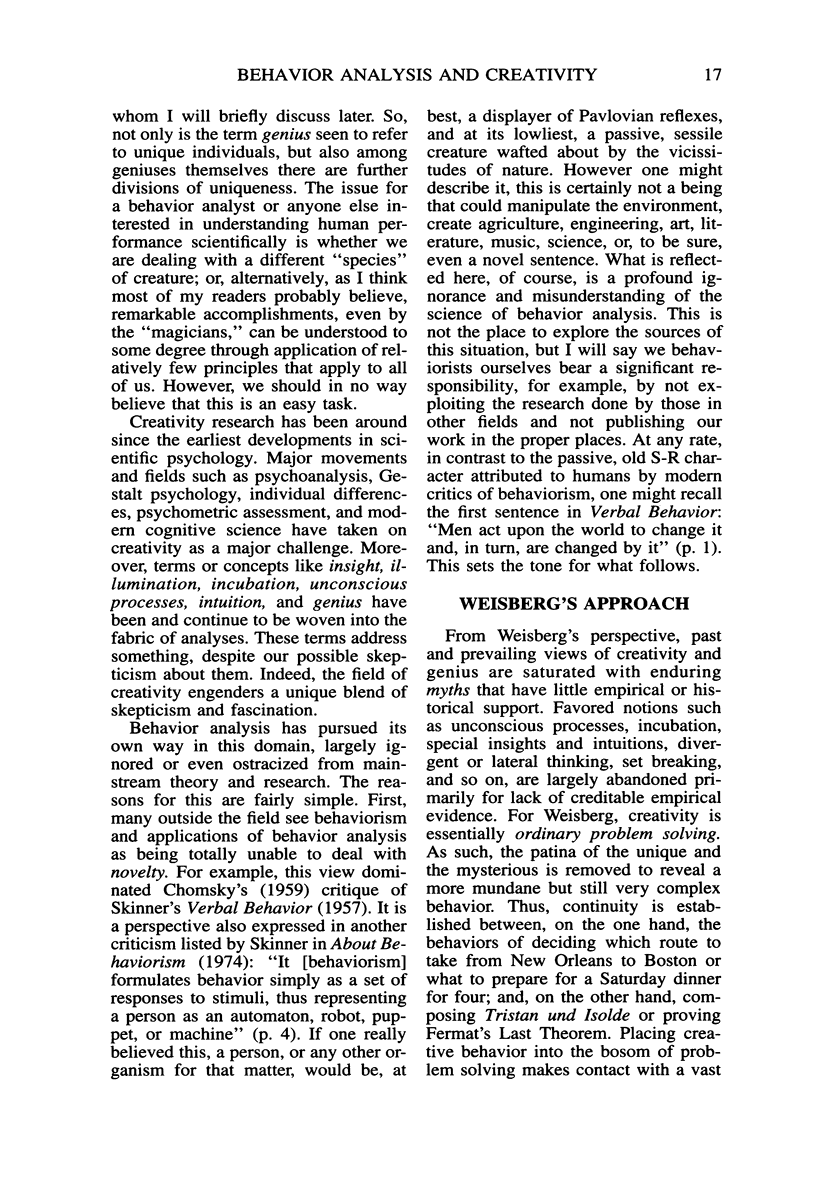
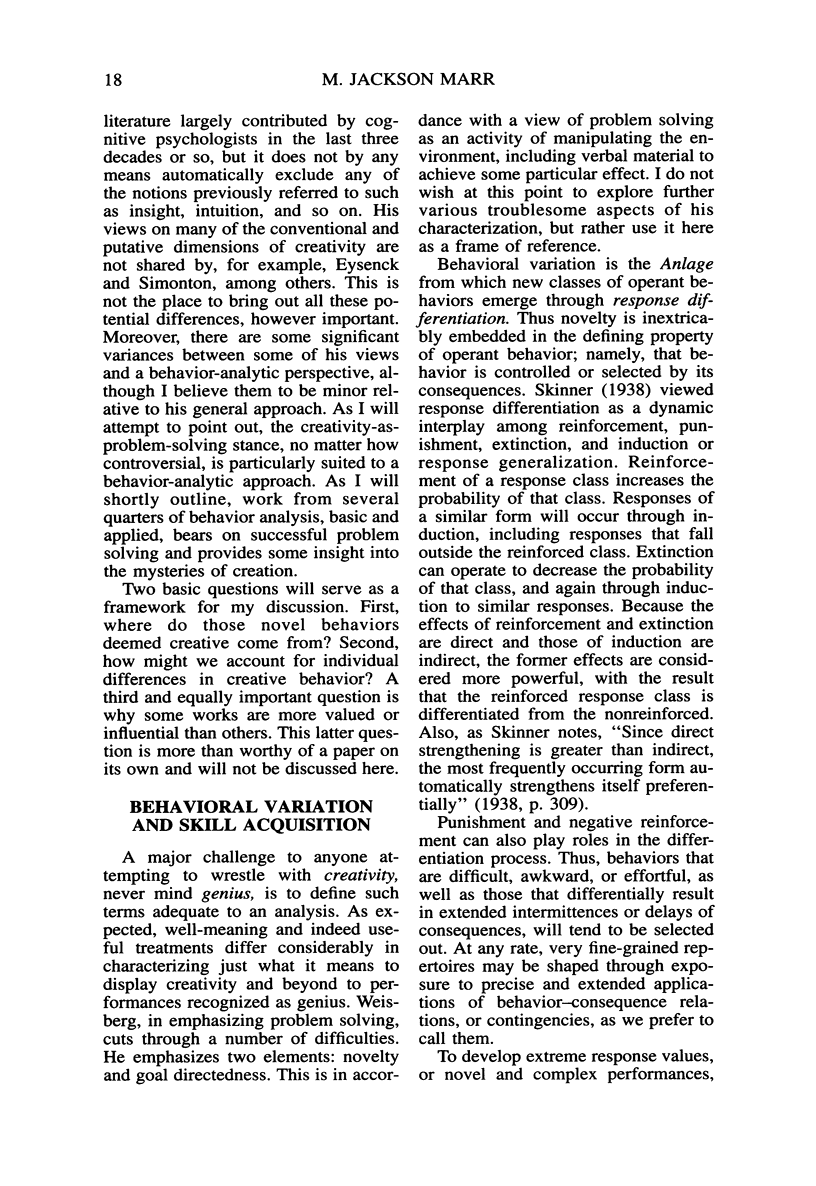
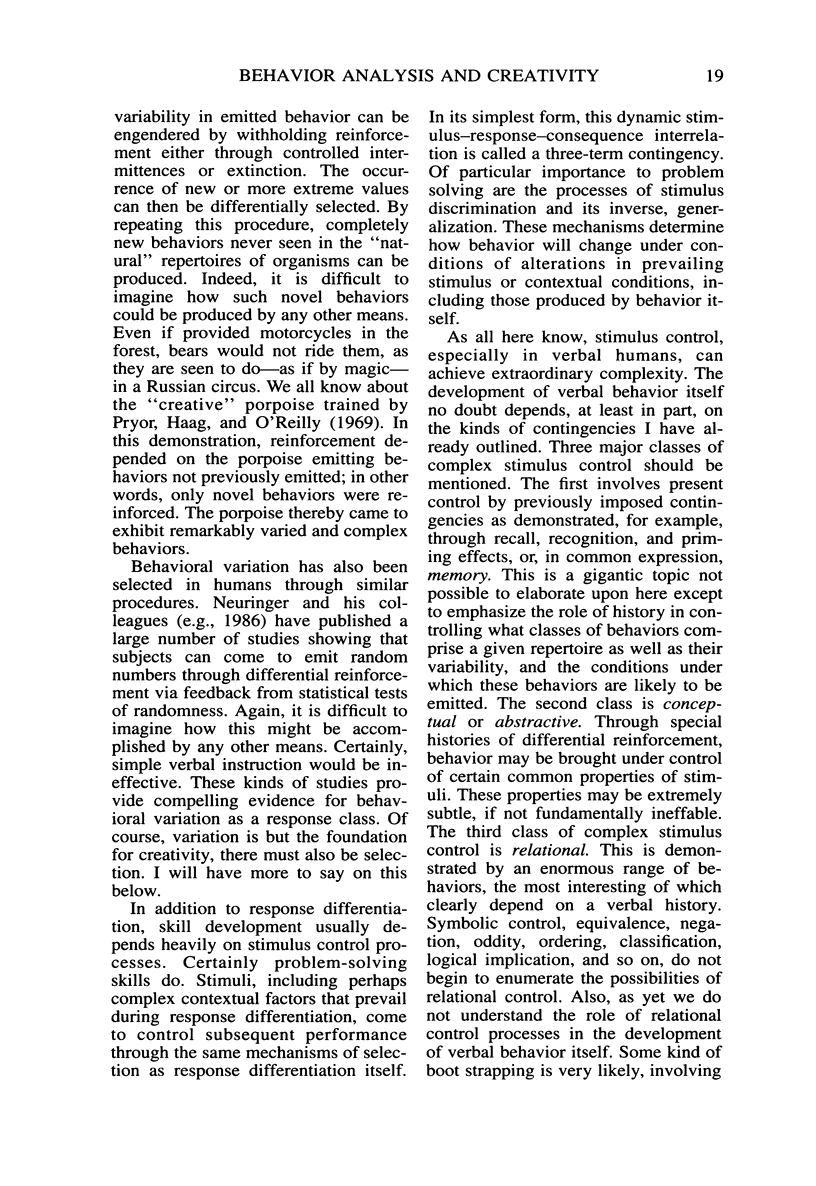
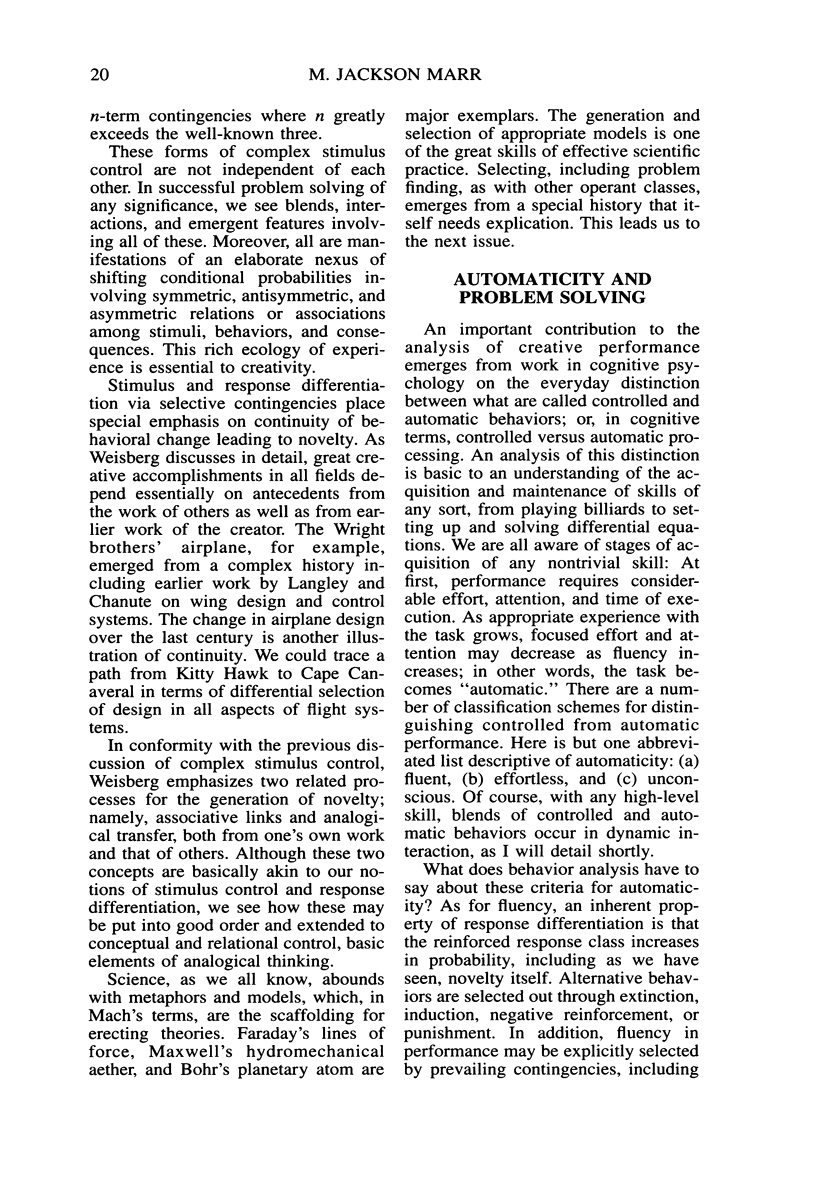
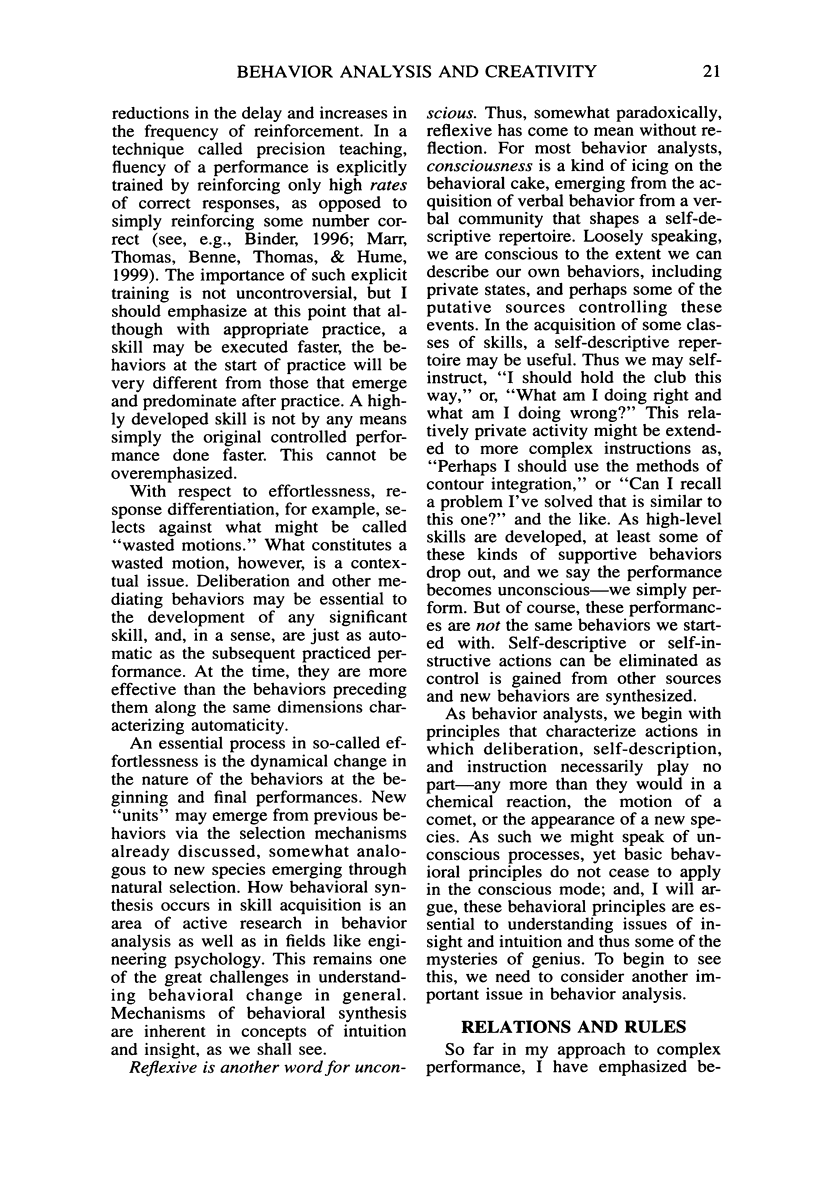
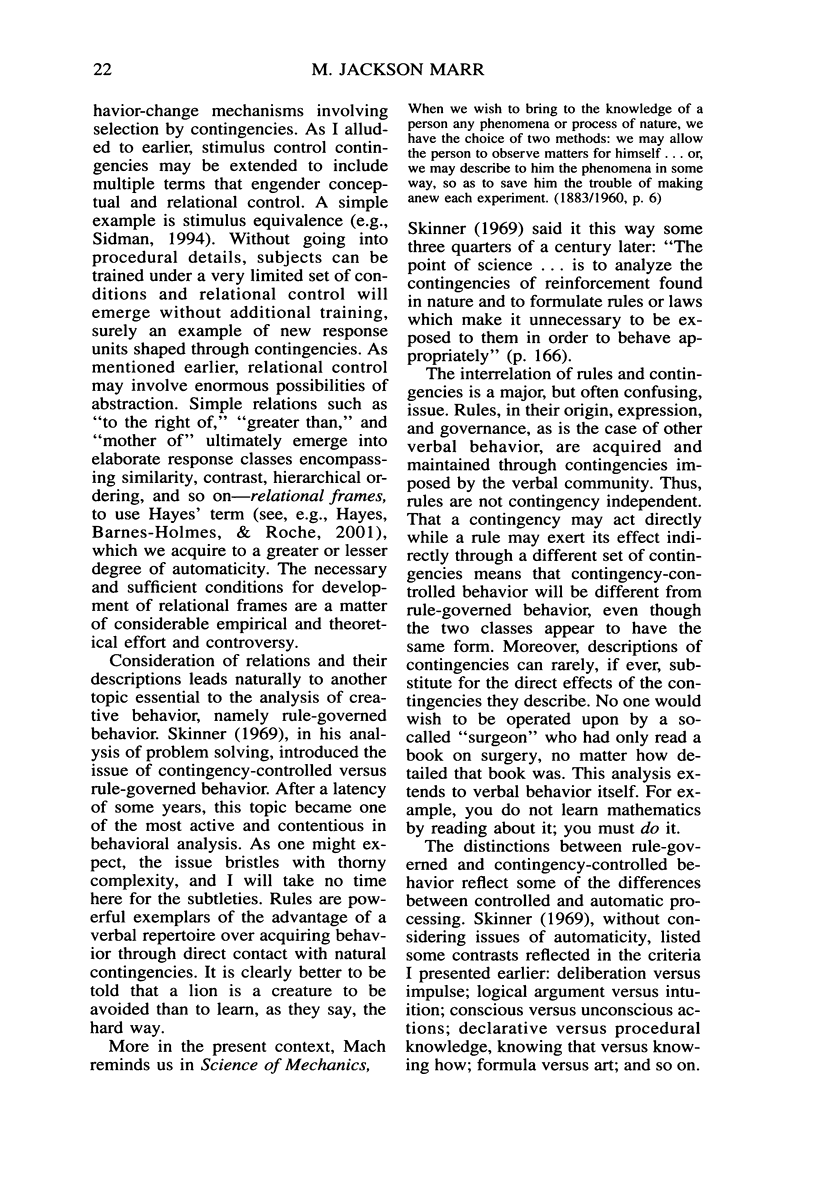
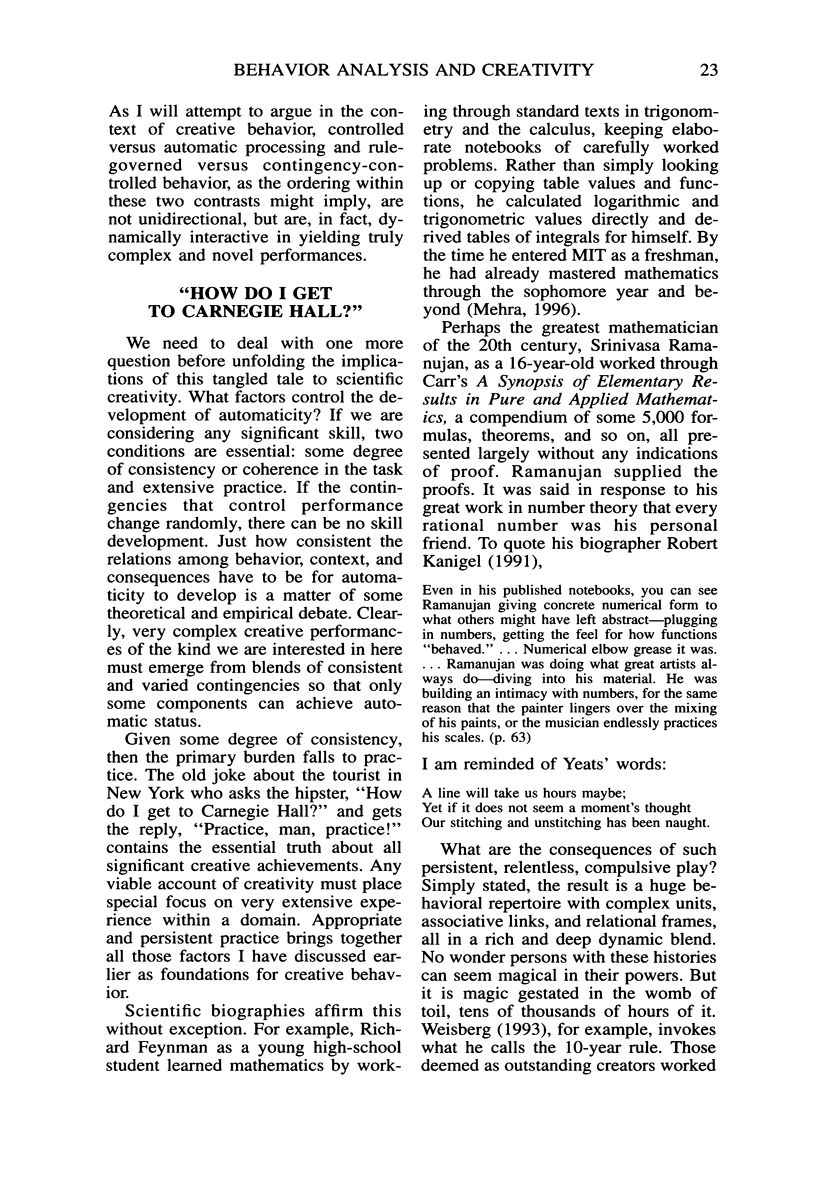
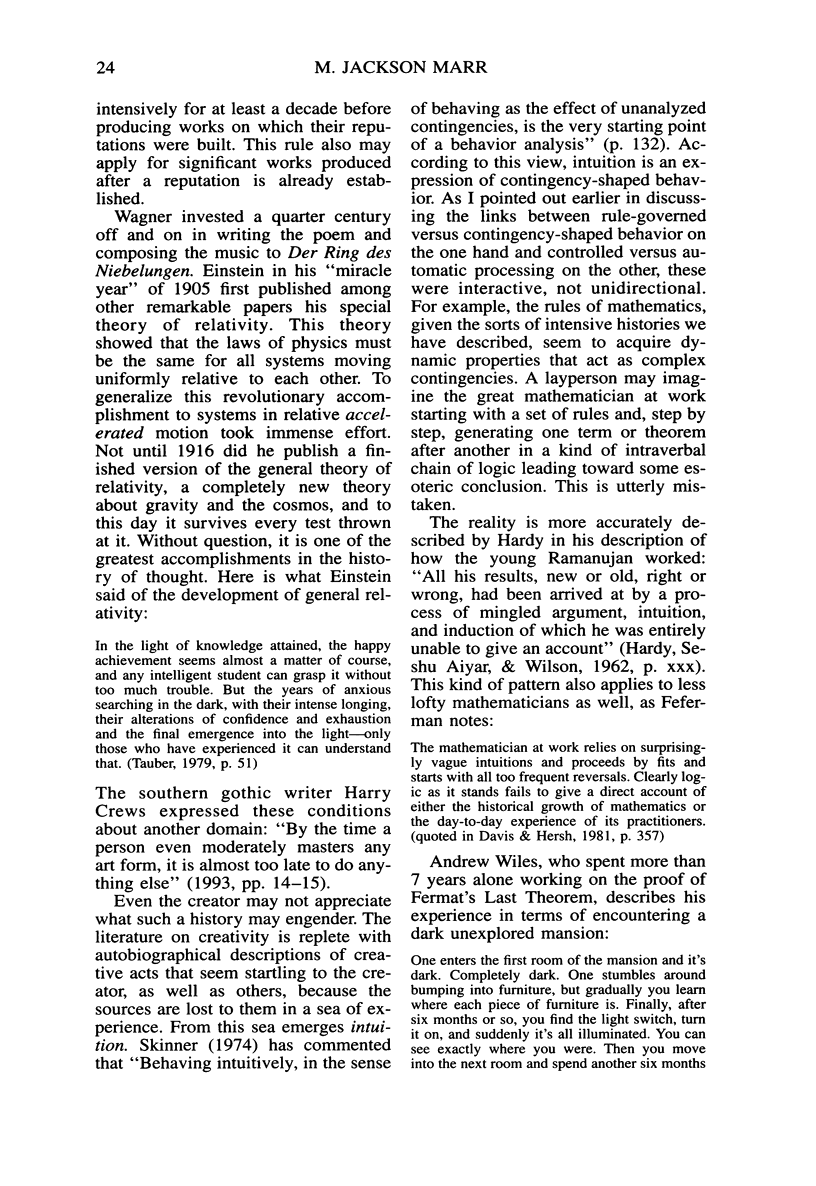
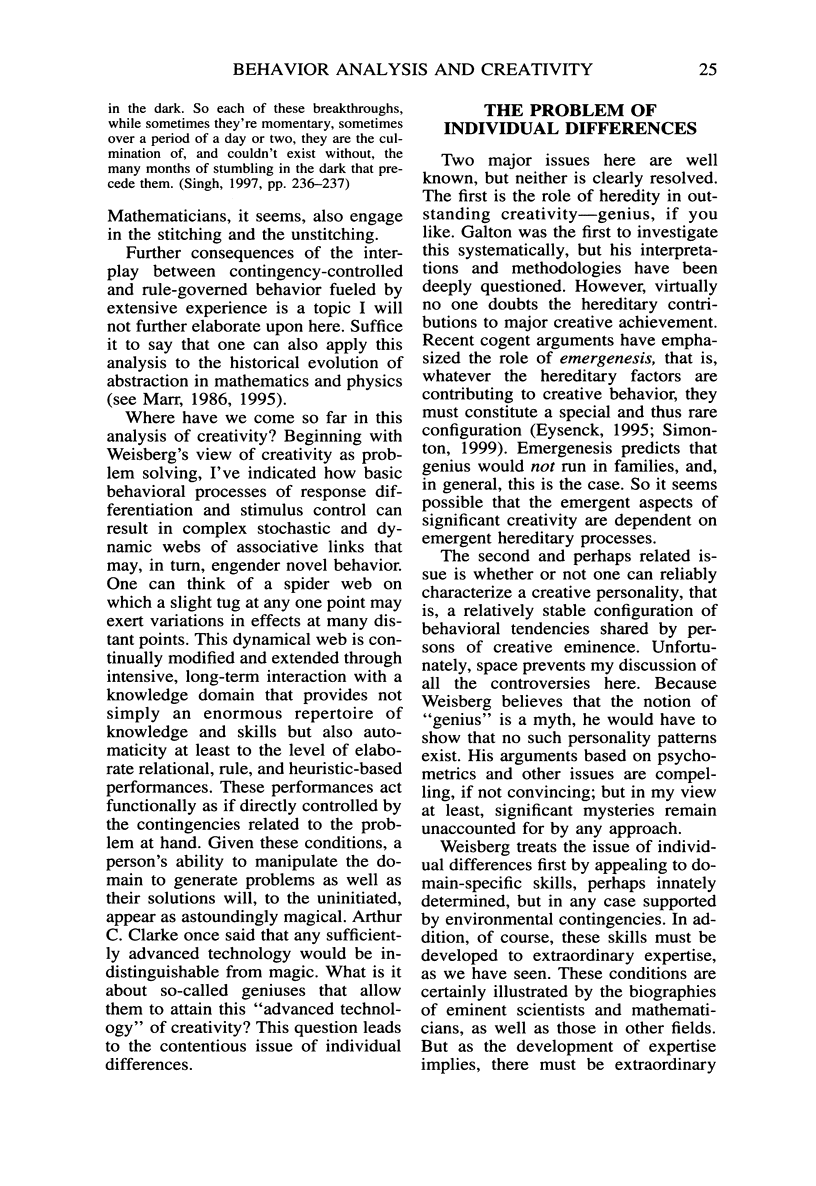
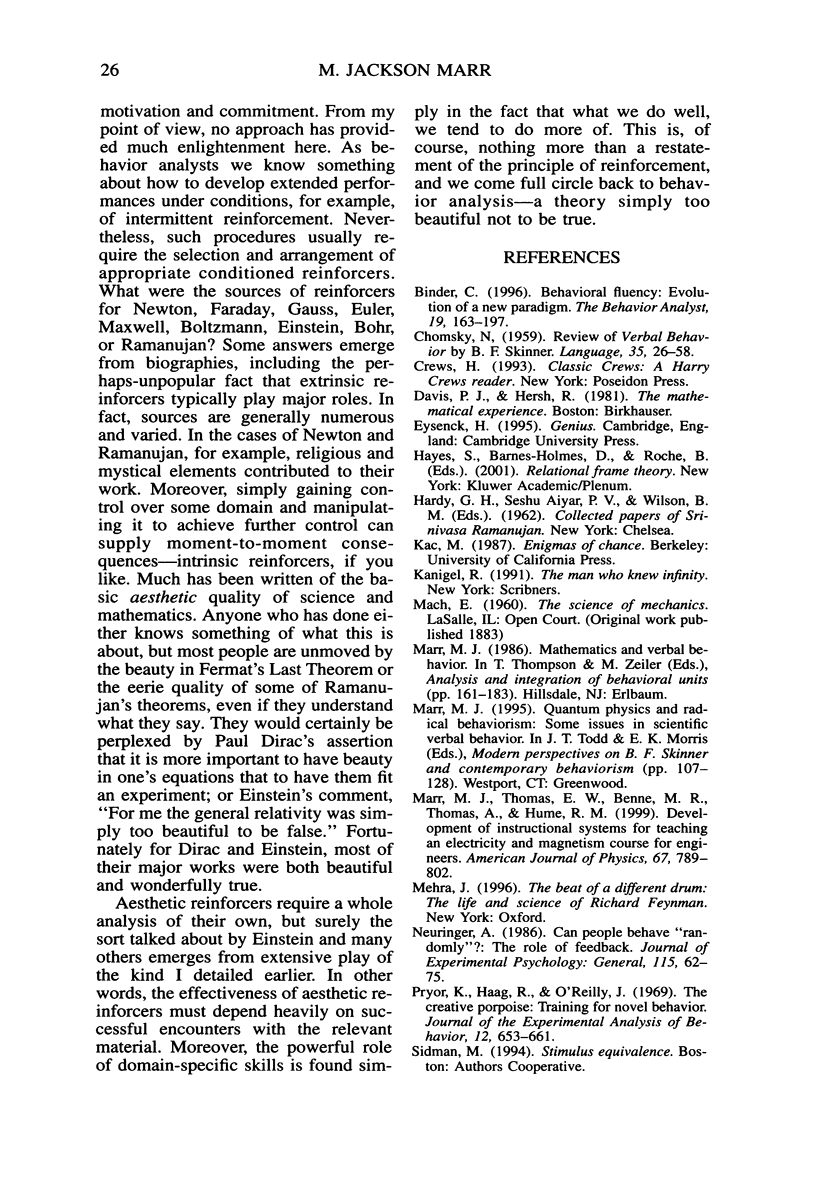
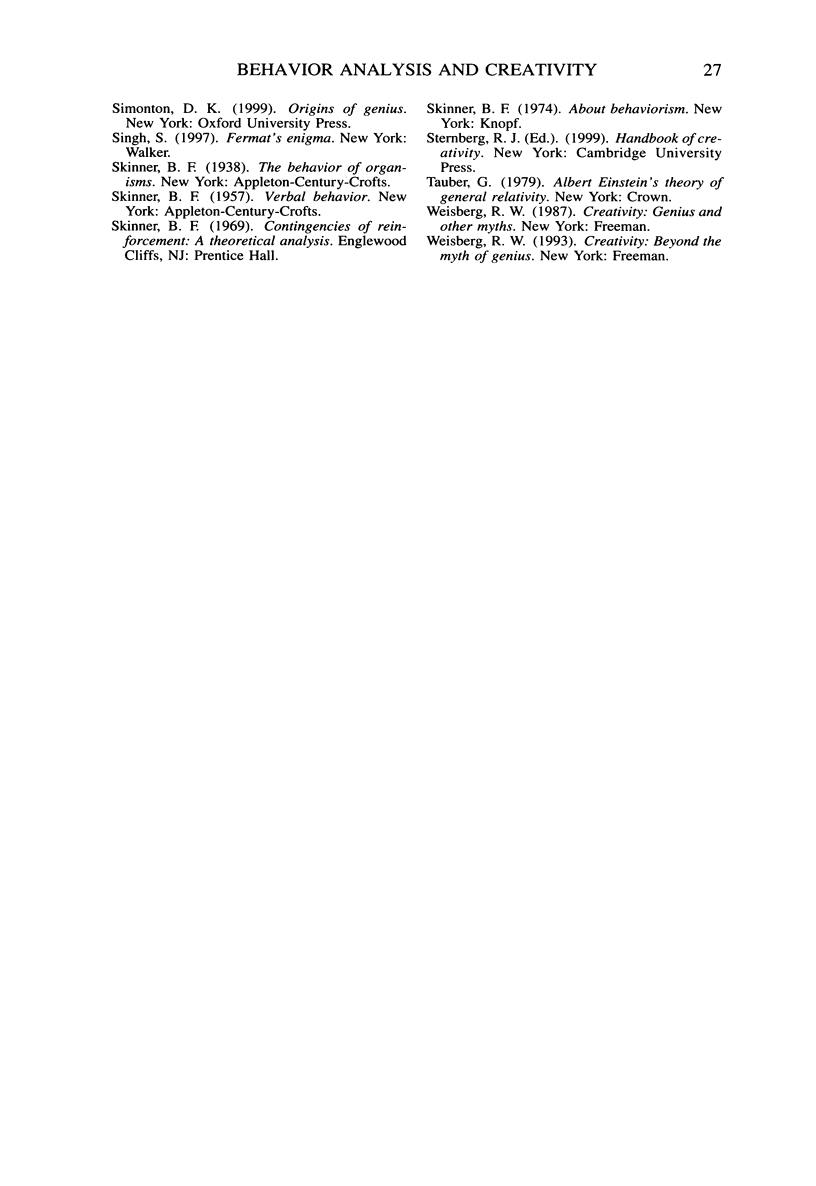
Selected References
These references are in PubMed. This may not be the complete list of references from this article.
- Binder C. Behavioral fluency: Evolution of a new paradigm. Behav Anal. 1996 Fall;19(2):163–197. doi: 10.1007/BF03393163. [DOI] [PMC free article] [PubMed] [Google Scholar]
- Pryor K. W., Haag R., O'reilly J. The creative porpoise: training for novel behavior. J Exp Anal Behav. 1969 Jul;12(4):653–661. doi: 10.1901/jeab.1969.12-653. [DOI] [PMC free article] [PubMed] [Google Scholar]


